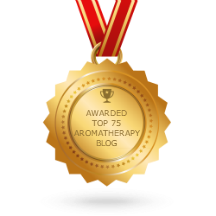Lisa is one of several friends who has agreed to occasionally contribute to our blog. I always ask our guest bloggers to share information that will give us all something to 'take home'...ideas for using these oils in our own lives. Her first article just arrived in my inbox:
STRESS
Although aromatherapy in hospice (which is where I work) is a specialized field, it doesn’t require a knowledge of medicine to be able to make a difference for those you love. A common denominator in virtually every disease process is stress. I have watched it exacerbate symptoms and even prevent powerful pharmaceuticals from working effectively. Stress is a term we’re all familiar with and it’s an easy one for you to address with your own friends and family (whether or not they’re suffering from a disease).
Here’s what happens: When we’re stressed our “emergency system,” the sympathetic nervous system, responds by throwing the body into “fight or flight” mode. It accelerates the heart, constricts blood vessels, causes sweat and adrenal glands to secrete more abundantly, slows the processes of the salivary and digestive glands and causes the entire digestive tract to grow sluggish.
Those are great responses to an emergency situation. However, if the stress persists and the parasympathetic nervous system is unable to bring the body back into a balanced state, the results can be devastating.
Let’s look at how stress might affect something like COPD (chronic obstructive pulmonary disease). The patient experiences extreme stress over the difficulty he’s having breathing. Even though doctors are able to stabilize the breathing, he remains stressed because he’s afraid it will happen again. In response to that fear, the sympathetic nervous system remains in fight or flight mode and the parasympathetic nervous system is unable to restore balance. The body’s emergency measures start to become liabilities as they linger on and on.
The accelerated heart rate and constricted blood vessels raise the risk of stroke; overactive sweat and adrenal glands keep him uncomfortable and awake at night, causing insomnia; slower salivary processes make him continually thirsty; and a sluggish digestive tract causes constipation and thus extreme discomfort – all of this on top of the diagnosed disease.
It’s easy to see the enormous benefits of controlling disease-related stress. There are many beneficial essential oils for stress and in his book The Complete Guide to Aromatherapy, Salvatore Battaglia lists the following essential oils: Basil, Bergamot, Roman and German Chamomile, Virginian and Atlas Cedarwood, Clary Sage, Frankincense, Geranium, Jasmine absolute, Lavender, Lemon, Sweet Marjoram, May Chang, Neroli, Melissa, Sweet Orange, Petitgrain, Rose Otto and absolute, Rosemary, Rosewood, Sandalwood, Vetiver and Ylang Ylang.
In the hospice where I work, I use creams, inhalers and bedside nebulizers (depending on the patient’s level of consciousness and ability to participate) and often combine the creams with modalities like massage or reflexology to produce positive, relaxing results. One of my favorite blends is simple and affordable: Lavender (Lavandula angustifolia), Bergamot (Citrus bergamia), Roman Chamomile (Anthemis nobilis) and Ylang Ylang (Cananga odorata). Marge has a great selection from which to choose and offers valuable (and often personal) information on each of the essential oils so be sure to browse her site.
Lisa is a clinical aromatherapist in hospice. She is the Nevada Director for the National Association for Holistic Aromatherapy (NAHA) and has been a speaker at conferences for the National Hospice & Palliative Care Association, California Hospice and Palliative Care Association and the Association for Professionals in Infection Control. (She's shown here with Asher, but no Bio is available for him.) I was thrilled when Lisa first started placing orders with Nature's Gift. For personal reasons, hospices are a cause dear to my heart, and it gives me joy when we are able to participate in their mission.
I thank Lisa for the kind words about our oils...and I'm going to send her a small bottle of our Cape Chamomile Oil. It's a new, and relatively unknown oil from South Africa, and for me, it is the ultimate stress reliever. I can't wait until she has the chance to experience it.




3 comments:
Its my pleasure to look at your page and to enjoy your excellent topics, I appreciate it very much. I feel great that about these articles, as all of them make sense and are very useful.
I have been an arts coordinator for a hospital for 20 years working with patients in the arts and healing field. I have taken my expertise to hospice and am very interested in getting information that will help me get started with aroma therapy kits at a reasonable cost. Any help would be most appreciated. Thanks so much. marlena
Marlena, not sure whether you are looking at training or at supplies. Please email me marge at naturesgift.com and we'll discuss the various options open to you. We can suggest training, if that's appropriate, and of course we can supply the oils that would be appropriate. we supply a long list of hospitals and hospices. (Lisa, the author of this post) is one of our clients.
Post a Comment